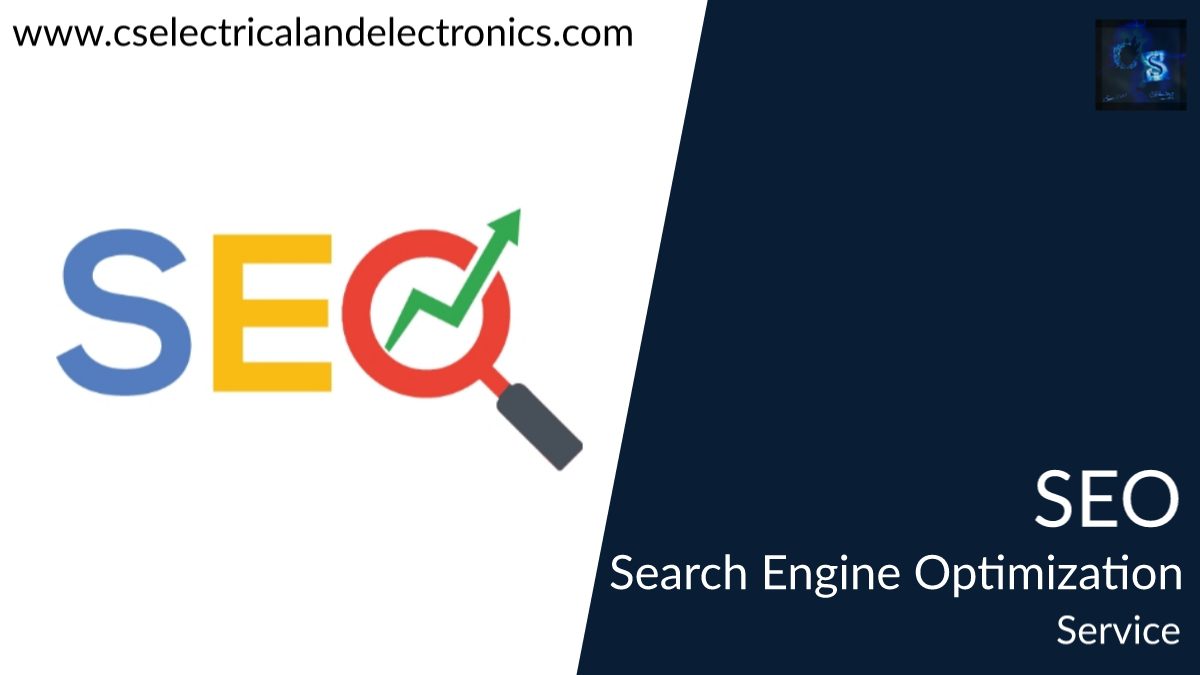SEO (Search Engine Optimization) Service | Rank Your Website
The goal of SEO, or search engine optimization, is to increase traffic from natural (unpaid) search results on websites and search engines like Google, Bing, and Yahoo.
You may take a number of steps to make it easier for search engines to index your website and provide them recommendations for how it should be cited and linked to. Since there are no hard-and-fast guidelines, some people view SEO as an art form. You can support a few recommendations to raise your search rankings, though.
You should first keep in mind that there are no assurances. For ranking websites, identifying various linkages, and deleting pages from its index, each search engine uses a different set of algorithms. Some companies also frequently modify their algorithms. I’ve managed websites that regularly appeared in Google’s top 5 (and a select handful still do), frequently in the top position.
But the jobs are always shifting. When working on SEO, I hope that my sites are easy for my current customers to navigate and use. My websites will function well for search engines if they function properly for users.
Why you need SEO
The truth is that you need to worry about SEO if your website depends on pageviews to stay alive. Google, Bing, and Yahoo are the three major search engines that account for the great majority of website traffic. If your website doesn’t appear in the search results, it’s likely that no one will find it.
However, it’s not just about people finding your site; it’s also about the calibre of those visitors. If your pages are completely search engine optimized, they will draw visitors who are looking for what your website has to offer.
The best search engines try to direct people to what they are looking for rather than just linking them at casual, so someone looking to buy a phone is not going to settle up on my site, www.cselectricalandelectronics.com, but if they want information about electrical, electronics, and computer science, they would be happy to settle up there.
What about social media?
The popularity of social media platforms like Instagram, Facebook, and Twitter is one thing that is currently highly appealing. These websites don’t generate a lot of traffic, but they are an integral part of a comprehensive website-building plan. In actuality, rather than increasing website page views, the majority of businesses who use Facebook find the most success in developing their brands.
This is so because social media platforms like Facebook and Twitter have distinct objectives than search engines. People are required to continue using Facebook and Instagram. As long as people see the advertisements they are showing, they are able to make money. If someone moves to visit your website, they don’t get paid.
The two main ways that search engines generate revenue are through the various services they provide and through the advertisements they display within the search results themselves. A search engine’s main purpose is to gather information and link to it so that users can access it.
You can do your own SEO
The benefit of SEO is that it is simple to implement. The fundamentals are simple to understand and can be used to any website, but it can get highly intricate, making server access difficult and sometimes requiring programming expertise. And the best part of well-done SEO is that it makes your website more appealing to users who visit your pages rather than just search engines.
Why don’t search engines find sites without SEO?
It’s important to know that search engines can still find websites without SEO. The Google spiders are constantly scouring the web for fresh pages to add to their index. A spider can build your site in as little as a few hours to as long as a few days, depending on where it is connected from.
Even the most sophisticated search engines are merely computer programmes. The major search engines regularly update their algorithms to improve the way their search results function, the way their web-crawling robots operate, and the way their users respond to the results they receive.
But the quality of search results depends on the content that is available for indexing. Your web pages will probably be confusing and difficult for search engine robots to read if they are complicated or difficult to understand for your clients. Additionally, if the robots are confused, your site may not appear where you’d like it to in the search results.
How search engine work
Robots are computer programmes that search engines use to crawl the internet, examine pages, and add them to their indexes. Crawlers and spiders are other names for these programmes. After discovering a new page, the spiders read the HTML, CSS, and JavaScript and store the contents in huge databases.
Later, when a user submits a search query to the search engine, this information is retrieved. Search engine providers utilise sophisticated algorithms to determine which pages will appear for which search queries and in what ranking. Each search engine has a unique set of ranking algorithms that incorporate hundreds or even thousands of variables. However, some of them do.
- Trust of the domain (example: cselectricalandelectronics) and domain quality.
- Links to the site from trusted domains and websites.
- Relevant content
- Length and readability of the content.
- Engagement – how long people stay on the website after they have clicked on search.
- Social metrics like tweets from Twitter or mentions on Instagram or Facebook.
These are not all the possible things your pages could be measured on when being ranked by search engines.
Need Support?


